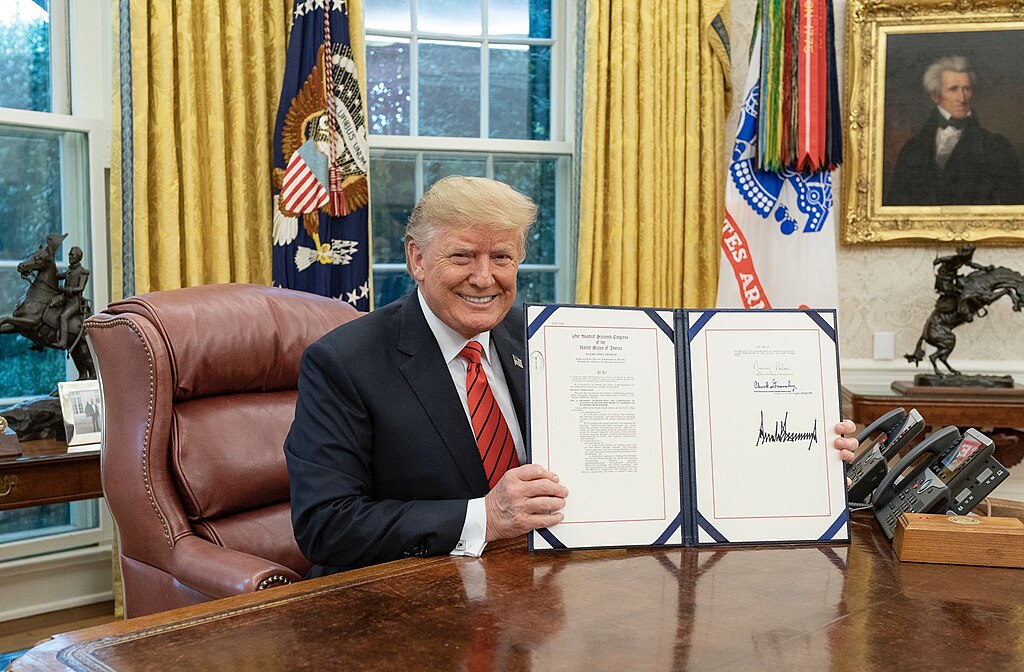Donald Trump’s 2025 farm policies are stirring significant debate within America’s agricultural sector, with sweeping changes that promise modernization but spark concern among small farmers. As the administration prioritizes deregulation and subsidy restructuring, stakeholders are grappling with the potential impacts on food security, rural livelihoods, and the global agricultural market.
A Push for Deregulation and Market Efficiency
Trump’s administration has emphasized deregulation as a cornerstone of its 2025 farm policy. According to the Department of Agriculture, the president aims to reduce federal oversight in agricultural practices, which he argues will foster innovation and competitiveness. Key measures include relaxing environmental restrictions, streamlining approval processes for genetically modified crops, and revisiting pesticide regulations.
While large-scale producers have welcomed these changes, citing cost savings and increased efficiency, environmental advocates express concern. Critics argue that loosening regulations could harm ecosystems and jeopardize long-term sustainability. Furthermore, opponents suggest that deregulation may favor agribusiness giants, marginalizing small-scale farmers who lack the resources to adapt quickly.
The administration has also shifted its focus toward boosting international exports. In a recent address, Trump highlighted trade deals aimed at opening new markets for U.S. agricultural products, particularly in Asia and the Middle East. These agreements aim to counterbalance China’s growing dominance in global food exports, yet experts caution that trade barriers and geopolitical tensions may limit their effectiveness.
Controversial Cuts to Farm Subsidies
One of the most contentious elements of Trump’s farm policies is the proposed restructuring of federal subsidies. The administration plans to reduce direct payments to farmers while increasing investments in agricultural technology and research. Trump argues that these measures will promote self-reliance and modernize the industry, making American agriculture more competitive globally.
However, critics, including farmer advocacy groups, have labeled the subsidy cuts as a threat to rural stability. According to the National Farmers Union, small and medium-sized farms rely heavily on these payments to offset market volatility and rising operational costs. Without sufficient financial support, some worry that smaller farms could face closures, leaving large corporations to dominate the sector.
Public Reactions Highlight Divisions
The policy shifts have ignited a firestorm of opinions on social media, with netizens expressing both support and skepticism:
- @FarmStrongUSA: “Finally, a president who values efficiency over waste. These policies are what the industry needs to thrive!”
- @EcoWatchNow: “Cutting subsidies while deregulating pesticides? This administration is gambling with our food system and environment.”
- @RuralAdvocate: “Small farmers will bear the brunt of these changes. Rural America deserves better from its leaders.”
- @GlobalAgFocus: “Trump’s trade deals could open new markets, but will they outweigh the damage from subsidy cuts?”
- @GreenFutures: “Short-term gains for agribusiness giants, long-term losses for everyone else. This isn’t progress—it’s destruction.”
- @MarketWatchAgri: “Increased tech investment is great, but who will afford it without subsidies? The future looks bleak for family farms.”



 Russia Signals Openness to U.S. Security Guarantees for Ukraine at Geneva Peace Talks
Russia Signals Openness to U.S. Security Guarantees for Ukraine at Geneva Peace Talks  Trump Warns Iran as Gulf Conflict Disrupts Oil Markets and Global Trade
Trump Warns Iran as Gulf Conflict Disrupts Oil Markets and Global Trade  HHS Adds New Members to Vaccine Advisory Panel Amid Legal and Market Uncertainty
HHS Adds New Members to Vaccine Advisory Panel Amid Legal and Market Uncertainty  Dominican Republic Unveils Massive Rare Earth Deposits to Boost High-Tech and Energy Sectors
Dominican Republic Unveils Massive Rare Earth Deposits to Boost High-Tech and Energy Sectors  Philippines, U.S., and Japan Conduct Joint Naval Drills in South China Sea to Boost Maritime Security
Philippines, U.S., and Japan Conduct Joint Naval Drills in South China Sea to Boost Maritime Security  U.S.-Israel Strike on Iran Escalates Middle East Conflict, Trump Claims Khamenei Killed
U.S.-Israel Strike on Iran Escalates Middle East Conflict, Trump Claims Khamenei Killed  Argentina Senate Approves Bill to Lower Age of Criminal Responsibility to 14
Argentina Senate Approves Bill to Lower Age of Criminal Responsibility to 14  ICE Hiring Surge Raises Vetting Concerns Amid Rapid Expansion
ICE Hiring Surge Raises Vetting Concerns Amid Rapid Expansion  Federal Judge Blocks Virginia Social Media Age Verification Law Over First Amendment Concerns
Federal Judge Blocks Virginia Social Media Age Verification Law Over First Amendment Concerns  Trump Launches Operation Epic Fury: U.S. Strikes on Iran Mark High-Risk Shift in Middle East
Trump Launches Operation Epic Fury: U.S. Strikes on Iran Mark High-Risk Shift in Middle East  Trump Floats “Friendly Takeover” of Cuba as Rubio Reportedly Engages in Talks
Trump Floats “Friendly Takeover” of Cuba as Rubio Reportedly Engages in Talks  Macron Urges Emergency UN Security Council Meeting as US-Israel Strikes on Iran Escalate Middle East Tensions
Macron Urges Emergency UN Security Council Meeting as US-Israel Strikes on Iran Escalate Middle East Tensions  Pentagon to Halt Ivy League Programs for U.S. Military Officers Starting 2026
Pentagon to Halt Ivy League Programs for U.S. Military Officers Starting 2026  Israel Launches Fresh Strikes on Iran After Death of Supreme Leader Ayatollah Khamenei
Israel Launches Fresh Strikes on Iran After Death of Supreme Leader Ayatollah Khamenei  Venezuela Oil Exports to Reach $2 Billion Under U.S.-Led Supply Agreement
Venezuela Oil Exports to Reach $2 Billion Under U.S.-Led Supply Agreement  Trump to Address Nation as U.S. Launches Strikes in Iran, Axios Reports
Trump to Address Nation as U.S. Launches Strikes in Iran, Axios Reports  Israel Declares State of Emergency as Iran Launches Missile Attacks
Israel Declares State of Emergency as Iran Launches Missile Attacks 
































